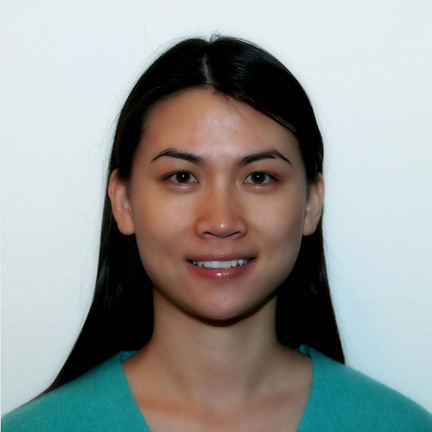Faculty Spotlight: Hongyuan Cao, Associate Professor of Statistics
Hongyuan Cao is an associate professor in the Department of Statistics, part of Florida State University’s College of Arts and Sciences.

in the Department of Statistics
Tell us a little about your background.
I was born and raised in the northwestern part of China and came to the U.S. in 2005. I received my Ph.D. in statistics from the University of North Carolina at Chapel Hill in 2010. Between 2010 and 2014, I worked as an assistant professor in the health studies department at the University of Chicago. From 2014 and 2018, I worked as an assistant professor in the Statistics Department at the University of Missouri-Columbia. I joined FSU’s Statistics Department in the fall of 2018 as an associate professor.
When did you first become interested in the areas of statistical analysis that you work within?
When I was a graduate student at UNC Chapel Hill, I was initially asked to develop methods of high-dimensional Bayesian analysis (a method of analysis in which the probability for a hypothesis can be updated as information becomes available). However, I did not make any essential progress after eight months’ worth of struggle. In that period, I read a lot of literature on high-dimensional hypothesis testing, which turned out to be my dissertation topic.
What are your current research interests, and what makes you passionate about them?
My current research interests include developing statistical methods for large and complex data for statistical applications in social, biological and medical sciences. Big data revolutionized many scientific disciplines and requires domain knowledge and statistical and computational tools for good interpretation. My work can provide such tools.
Moreover, partnerships with substantive experts not only help them to use the right statistical model but also synergize my development of statistical methods. That is very satisfying. I feel that there is a need to educate the public on the use and interpretation of statistics, as misuse of statistics can produce erroneous conclusions.
What do you want the public to know about your research? Why is your topic important?
My research involves using statistical and machine-learning methods to identify useful signals in big data. Finding needles in a haystack is a tremendous challenge given the small number of observations of many genes, proteins, etc. My work is based on a deep analysis of the statistical properties of the data and tests concerned, and provides the needed guidance to the scientific users on how to understand and interpret the data.
Who are your role models? Who has influenced you most in your life?
My parents shaped my value system, outlook and many habits. I am grateful to them for their unconditional love and support. Joel E. Cohen, a scientist and good friend at Rockefeller University, is also a role model. His integrity, work ethic and passion greatly influenced me.
What brought you to Florida State University? Why do you enjoy working at FSU?
FSU offered me a tenured position, which is a big attraction. Moreover, the academic environment is excellent. The department is very supportive and I can really focus on my work. The whole university is on an upward trajectory and invests a lot in faculty and students and I am very happy to be part of it. I especially like the new faculty orientation and Collaborative Collisions [interdisciplinary networking events for FSU researchers] organized by the Office of Proposal Development, which provides me with opportunities to meet and collaborate with faculty members outside of my department.
What is your favorite part of your job?
I like both the research and the educational parts of my job. I choose to stay in academia mainly for the freedom to do the research I am interested in. But it is also extremely rewarding to see students achieve their professional goals and to know that I played some role in their lives.
What is the most challenging part of your job?
Getting research funding. Given the shrinkage of federal funding for research, the competition to get a research grant is fierce.
How do you like to spend your free time?
Outside of work, I like outdoor activities, such as hiking, biking, walking, traveling and swimming. I have walked 10,000 steps per day on average for the past four years. I also like watching movies and playing card games. I am a fan of public radio like NPR, BBC and WFSU.
If your students only learned one thing from you (of course, hopefully they learn much more than that), what would you hope it to be?
Do not stop learning; do not stop improving.

